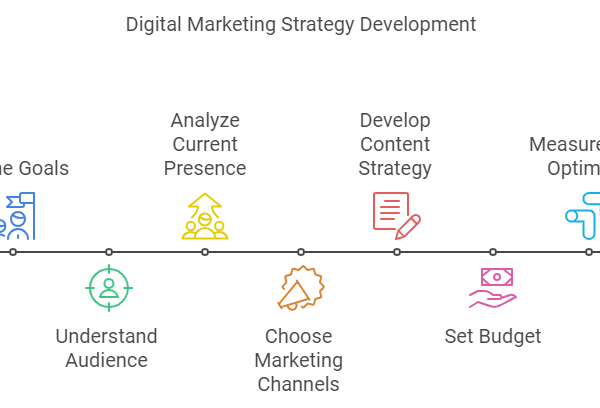
In today’s digital age, the field of journalism and mass communication plays a crucial role in shaping public discourse, disseminating information, and influencing societal change. From traditional print media to online news platforms and social media channels, the landscape of journalism is constantly evolving, offering exciting opportunities for aspiring journalists and communication professionals. If you have a passion for storytelling, a keen eye for detail, and a desire to make a difference, pursuing a Bachelor’s degree in Journalism and Mass Communication could be the perfect pathway to a rewarding and impactful career.
Understanding the Field
Journalism and mass communication encompass various disciplines, including journalism, broadcasting, public relations, advertising, digital media, and more. At its core, this field revolves around the creation, production, and dissemination of information through various channels to diverse audiences. Whether it’s reporting breaking news, crafting compelling narratives, managing public relations campaigns, or creating engaging content for digital platforms, professionals in this field play a crucial role in shaping public opinion and driving social change.
The Importance of a Bachelor’s Degree
While some individuals may enter the field of journalism and mass communication through practical experience or self-study, earning a Bachelor’s degree provides a solid foundation of theoretical knowledge, practical skills, and professional development opportunities. A Bachelor’s degree program offers a comprehensive curriculum that covers key topics such as media ethics, journalism principles, communication theory, multimedia storytelling, research methods, and media law. Additionally, students have the opportunity to gain hands-on experience through internships, practicums, and student media organizations, allowing them to build a portfolio of work and establish valuable connections within the industry.
Benefits of Pursuing a Bachelor’s Degree in Journalism and Mass Communication
Comprehensive Education: A Bachelor’s degree program provides a well-rounded education that covers various aspects of journalism and mass communication, including print, broadcast, digital, and strategic communication.
Practical Skills Development: Students acquire practical skills such as writing, reporting, editing, interviewing, videography, photography, social media management, and graphic design, which are essential for success in the field.
Professional Networking: Bachelor’s degree programs offer opportunities to connect with industry professionals, alumni, and peers through internships, networking events, guest lectures, and student organizations, providing valuable insights and potential job opportunities.
Portfolio Building: Students have the chance to build a portfolio of published work, multimedia projects, and campaign materials, which can showcase their skills and experience to potential employers.
Career Opportunities: A Bachelor’s degree opens up a wide range of career opportunities in journalism, broadcasting, public relations, advertising, digital media, corporate communications, nonprofit organizations, government agencies, and more.
Career Paths in Journalism and Mass Communication
Graduates of Bachelor’s degree programs in journalism and mass communication pursue diverse career paths based on their interests, skills, and specialization areas. Some common career options include:
Journalist/Reporter: Researching, writing, and reporting news stories for print, broadcast, or online media outlets.
Broadcast Journalist: Presenting news stories on television or radio, conducting interviews, and producing multimedia content.
Digital Media Specialist: Managing social media accounts, creating digital content, and optimizing online presence for organizations.
Public Relations Specialist: Developing and implementing public relations campaigns, writing press releases, and managing media relations for clients.
Advertising Executive: Creating ad campaigns, designing promotional materials, and planning marketing strategies for brands and organizations.
Content Creator/Editor: Producing written, audio, or visual content for websites, blogs, podcasts, or digital platforms.
Media Analyst/Researcher: Analyzing media trends, conducting audience research, and evaluating the impact of media messages.
Bachelor’s degree in Journalism and Mass Communication is more relevant than ever before. This dynamic field plays a critical role in shaping public opinion, fostering democracy, and disseminating information across various media platforms. Through a comprehensive curriculum encompassing media law, ethics, news reporting, and digital media production, students gain the skills and knowledge needed to excel in this fast-paced industry. Hands-on experiences such as internships and fieldwork provide invaluable real-world insights and industry connections, preparing graduates for diverse career opportunities in journalism, public relations, advertising, and beyond. Embark on a transformative journey in journalism and mass communication, and become a catalyst for positive change in today’s media landscape.
Conclusion
A Bachelor’s degree in Journalism and Mass Communication offers a solid foundation for a rewarding and impactful career in the dynamic field of media and communication. By combining theoretical knowledge with practical skills and professional experience, graduates are well-equipped to navigate the evolving landscape of journalism, broadcasting, public relations, advertising, and digital media. Whether you aspire to be a journalist, broadcaster, PR professional, digital marketer, or content creator, pursuing a Bachelor’s degree in Journalism and Mass Communication provides the essential tools and opportunities to turn your passion into a successful career. So, if you’re ready to embark on an exciting journey of discovery, storytelling, and social impact, consider pursuing a Bachelor’s degree in Journalism and Mass Communication today.











